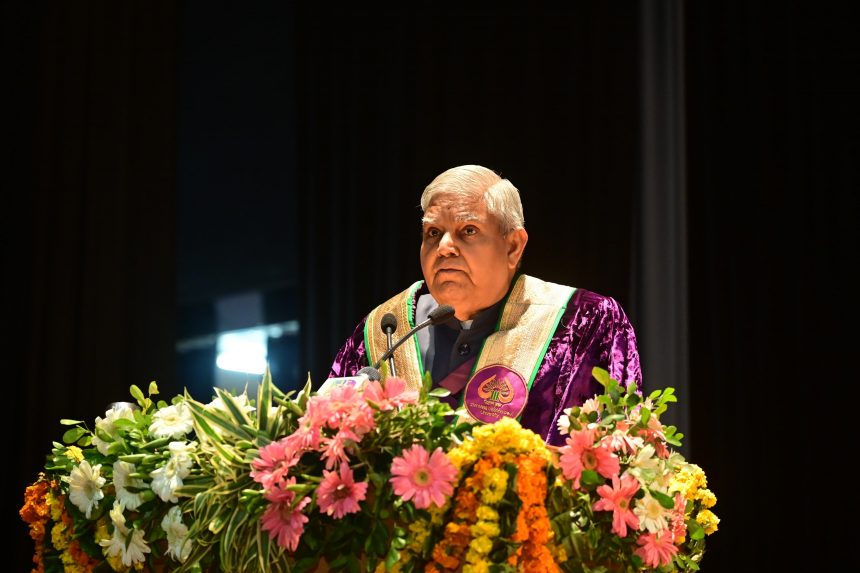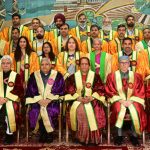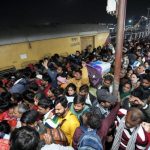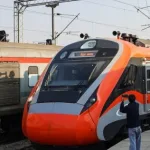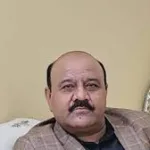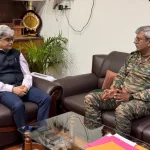Katra, Feb 15: Vice President Jagdeep Dhankhar, addressing the Shri Mata Vaishno Devi University (SMVDU) convocation, hailed the remarkable transformation of Jammu and Kashmir following the “historic” abrogation of Article 370 in 2019. He emphasised that the move had lifted the region from a state of conflict to one of hope, peace, and progress.
The ceremony, held at the Matrika Auditorium of the SMVDU campus, was attended by a distinguished lineup of dignitaries, including Jammu and Kashmir Lieutenant Governor Manoj Sinha, Chief Minister Omar Abdullah, and Education Minister Sakeena Firdous.
Speaking at the 10th convocation ceremony of Shri Mata Vaishno Devi University (SMVDU), Vice-President said that it is the supreme duty of everybody to keep the national interest above everything, be it personal or political interest.
“Prioritising national interest over political and personal interest is above everything and nationalism is our identity,” Dhankhar said.
Hailing the historic abrogation of Article 370 in 2019, the Vice President said the region, once considered a conflict zone, was now flourishing with economic growth, international investment, and unprecedented political integration.
“From a land shrouded in uncertainty and disorder, Jammu and Kashmir is now a beacon of stability and progress,” Dhankhar said, emphasizing the profound changes that have reshaped the region.
“In the sacred land of Mata Vaishno Devi, the walls of separation have crumbled, and a new pilgrimage has begun,” he said, alluding to the historic move that brought Jammu and Kashmir into the fold of India’s constitutional framework.
He further pointed out that Article 370 was always intended to be a temporary provision in the Constitution, a view also held by B.R. Ambedkar, the architect of the Indian Constitution. “Dr. Ambedkar did not draft Article 370. I would urge you to understand the historical context behind why he declined to do so,” Dhankhar noted.
“Jammu and Kashmir is no longer a story of conflict. It is now a confluence of confidence and capital,” Dhankhar said, highlighting how the region’s economic revival has boosted local businesses, startups, and infrastructure development. The region has seen the establishment of its first multiplex in Srinagar and a significant rise in women-led startups, with one-third of them now being led by female entrepreneurs,” he said.
In a reference to BJP ideologue Syama Prasad Mookerjee, Dhankhar said that the dream of ‘Ek Desh Mein Ek Nishan, Ek Vidhan, Ek Pradhan’—the call for a unified India under one flag, one constitution, and one leadership—was now a reality after the abrogation of Article 370.
“Now, the winds of change have brought peace and progress. What was once a demand by a great son of the soil, has now been accomplished,” he added, referring to Mookerjee’s vision of a unified nation.
The Vice President also cited Sardar Vallabhbhai Patel, the country’s first Home Minister, who played a pivotal role in integrating India’s princely states, except Jammu and Kashmir.
Reflecting on his personal experiences, Dhankhar recalled his first visit to Jammu and Kashmir in the early 1980s, when he toured Gulmarg and Sonamarg with his family. “The second visit was a painful experience. I came to Srinagar in 1989 as a member of Parliament, and the streets of Srinagar were nearly empty, overshadowed by gloom,” he said. “But today, we stand witness to a transformed region. More than two crore tourists visited Jammu and Kashmir in 2023, a testament to the revival of the region’s appeal.”
“Democracy has found its true voice here. The region is no longer a story of conflict,” Dhankhar said. “Every investment proposal in New Kashmir is not just about capital—it’s about trust being restored and faith being rewarded.”
In just two years, Jammu and Kashmir has seen investment proposals worth Rs 65,000 crore, indicating a strong economic interest in the region. For the first time since 2019, foreign direct investment (FDI) has also made its way into the region, with multiple international companies expressing interest.
“The confluence of confidence and capital is evident,” Dhankhar remarked. “Jammu and Kashmir, once known as heaven on earth, is now a symbol of hope and prosperity. The winds of change have brought peace, progress, and opportunity.”
Addressing the graduating students, Dhankhar encouraged them to embrace the opportunities unfolding in the region and urged them to take full advantage of the government’s forward-looking policies. He spoke about the critical role of education, urging the youth to continue their journey of learning. “This is not just a ‘Dikshaant,’ it is a lifelong pursuit of knowledge,” he said, citing the Pre-Socratic philosopher Heraclitus’ idea that “the only constant in life is change.”
With new technologies like quantum computing, green hydrogen, and 6G on the horizon, Dhankhar emphasized that the youth of Jammu and Kashmir have a unique opportunity to be part of India’s growing technological and economic revolution. “The opportunity basket is expanding,” he said, urging the graduates to explore new avenues beyond the traditional government job mindset.
Meanwhile, a total of 684 students were awarded their Bachelor’s Degrees in various disciplines during the academic year 2023-24, while 147 received their Master’s Degrees, 34 earned Integrated Master’s Degrees, and 44 students were conferred Ph.D. degrees. Additionally, 26 students were awarded medals, nine received certificates of distinction, and 10 students were presented with the prestigious Infosys Foundation Prize for Excellence.
Among the 909 graduates, 501 were male and 408 were female, underscoring the growing gender balance in higher education at the university.
The Vice President was warmly received at Jammu airport earlier in the day by Lieutenant Governor Sinha, who also serves as the Chancellor of the university. The ceremony marked a significant milestone for SMVDU and its students, as they step into the future with renewed commitment to nation-building and societal progress.
Later, Vice President Jagdeep Dhankhar and Jammu and Kashmir Lieutenant Governor Manoj Sinha visited the Shri Mata Vaishno Devi Temple to offer prayers at the revered pilgrimage site in Katra on Saturday.
Vice President Jagdeep Dhankhar and his wife Sudesh Dhankhar also planted saplings in memory of their late mothers, Kesari Devi and Bhagwati Devi at the premises of Shri Mata Vaishno Devi University.
Among others Minister for Higher Education; Jugal Kishore Sharma, Member of Parliament; Prof. Pragati Kumar, Vice Chancellor of SMVDU; Vice-Chancellors from various universities; senior civil and police administration officials; faculty members; and parents of the graduating students were also present at the ceremony.
,


